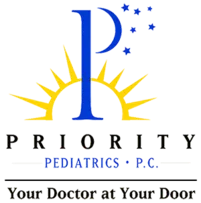These are the Key Facts about the Safety & Effectiveness of Human Papilloma Virus (HPV) vaccine for Tweens & Teens
HPV vaccine is underutilized in our country, despite the overwhelming evidence of its safety and effectiveness. While vaccination rates continue to improve for the other adolescent vaccines, HPV vaccination rates have not. Data suggest that adolescents and young adults and their parents are not getting strong recommendations for HPV vaccine from their doctors when patients are 11 or 12 years old.
- More than 175 million doses of HPV vaccine have been distributed worldwide and 57 million doses have been distributed in the United States.
- More than 7 years of post-licensure vaccine safety monitoring in the United States provide continued evidence of the safety of HPV4. Data on safety are also available from post-licensure monitoring in other countries for both vaccines and provide continued evidence of the safety of HPV2 and HPV4.
- Syncope can occur among adolescents who receive any vaccines, including HPV vaccine. ACIP recommends that clinicians consider observing patients for 15 minutes after vaccination.
Regardless of a safety profile that is similar to the other adolescent vaccines, parents cite safety concerns as one of the top five reasons they do not intend to vaccinate daughters against HPV.
Efficacy of HPV vaccines
- Among women who have not been previously infected with a targeted HPV type, both vaccines have over 95% efficacy in preventing cervical precancers caused by HPV 16 or 18.
- HPV4 also demonstrated nearly 100% vaccine efficacy in preventing vulvar and vaginal precancers, and genital warts in women caused by the vaccine types.
- In males, HPV4 demonstrated 90% vaccine efficacy in preventing genital warts and 75% vaccine efficacy in preventing anal precancers caused by vaccine types.
Since the vaccine does not protect against all HPV types, it does not replace other prevention strategies, such as regular cervical cancer screening.
Prevention of HPV-associated disease by vaccination
- Two vaccines (bivalent/HPV2 and quadrivalent/HPV4) are available to protect against HPV 16 and 18, the types that cause most cervical and other anogenital cancers, as well as some oropharyngeal cancers.
- The Advisory Committee on Immunization Practices (ACIP) recommends routine vaccination of girls age 11 or 12 years with the 3-dose series of either HPV vaccine and routine vaccination of boys age 11 or 12 years with the 3-dose series of HPV4.
- Vaccination is recommended for females through age 26 years and for males through age 21 years who were not vaccinated when they were younger.
The HPV vaccine prevents cancer_no small accomplishment! It is safe & effective. The younger a person is when first immunized_ages 11 & 12 years_the more effective the protection when the individual is older and mature and needs protection. This is not a new vaccine. It has been well tested.
